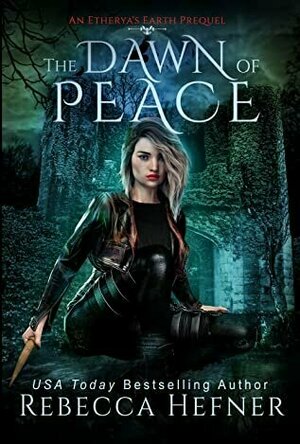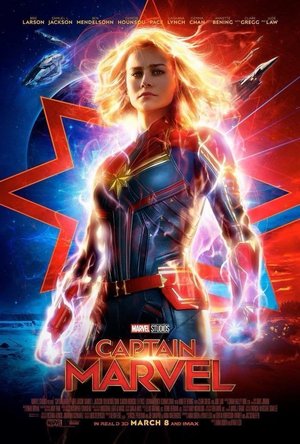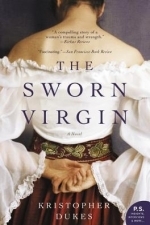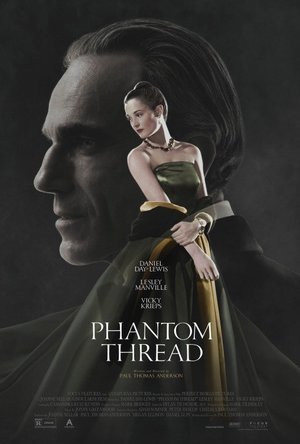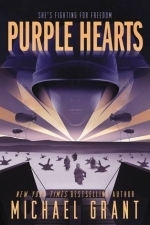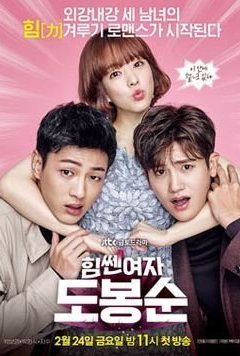
Strong Girl Bong-Soon
TV Show
Do Bong-soon (Park Bo-young) was born with superhuman strength. Her strength is hereditary and...
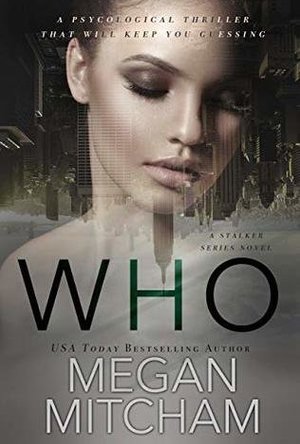
Who (Stalker #1)
Book
A billionaire in high heels. A relentless stalker. A chance rooftop meeting. Her choices could send...
Fiction Thriller Contemporary Romance Dark Romance Psychological
Merissa (13798 KP) rated The Dawn of Peace (Etherya's Earth #0.5) in Books
Feb 4, 2022
Kilani is a strong woman, a brilliant warrior, and relegated to organising functions at her father's request because women aren't allowed to join the army or have a mind of their own. Alrec is a Vampyire who has lost his whole family and swore to avenge them. These two meet in a meadow one evening when Alrec is there to raid the Slayer men. They fight and Alrec lets Kilani live. Sometime later, Kilani returns the favour, and mutual respect and trust begin to flourish between these two.
I loved this story! It was fast-paced but had enough attention to detail to keep me satisfied. The only trouble I have now is I want to read The End of Hatred again to see if they feature in that. The world-building is second to none, with plentiful descriptions and situations to keep everyone's attention.
If this had been the first book in the series I had read, it would definitely have pushed me to read more. Absolutely brilliant and definitely recommended by me.
** same worded review will appear elsewhere **
* A copy of this book was provided to me with no requirements for a review. I voluntarily read this book, and the comments here are my honest opinion. *
Merissa
Archaeolibrarian - I Dig Good Books!
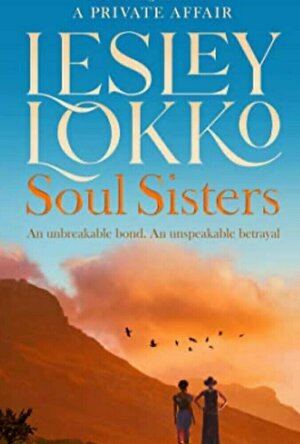
Soul Sisters
Book
Soul Sisters by Lesley Lokko is a rich, intergenerational tale of love, race, power and secrets...
Historical fiction South Africa Edinburgh London
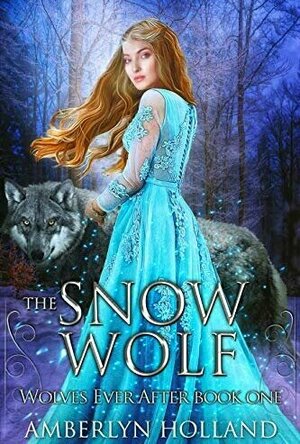
The Snow Wolf (Wolves Ever After #1)
Book
Myra's no Ice Queen. She's a reclusive outcast with a secret she'll do anything to hide. Beware...
Young Adult Fantasy Romance
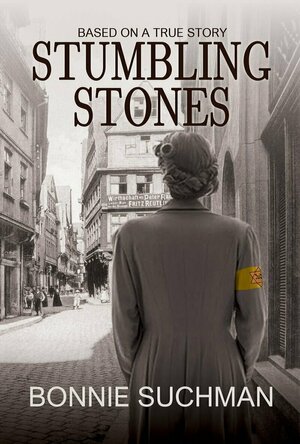
Stumbling Stones
Book
"Alice knew that Selma sometimes felt judged by their mother and didn't always like it when Alice...
Historical Fiction Jewish History Family History WWII
Fred (860 KP) rated Captain Marvel (2019) in Movies
Apr 29, 2019
This movie was surrounded by controversy because it's star, Brie Larson, said something about the movie being for the empowerment of women & doesn't care what white men think about it. This set off white men who boycotted the movie, which didn't amount to much, since the movie was still a hit. But did it deserve it?
Okay, so when I see a movie, I quite frankly watch the movie & base my review on it. Yes, I'm a white male who should be bothered by Larson's words, but being a movie fan & a superhero movie fan, I am able to block that out & watch the movie.
So, here we go. I am a Fantastic Four fan. They have been & always will be my favorite comic book. And so, I was looking forward to finally seeing the Skrulls on film. I won't give anything away, but I'll say the Skrulls were done very well, as were the Kree. Now we've seen the Kree before in the Marvel films, but not the Skrulls. So, the movie has that going for it.
The effects to give us a young Samuel Jackson & a young Clark Gregg have been perfected. Yes, we've seen it before, but now it's not even noticeable.
Now, let's get to the movie itself. It's typical Marvel fare, starts off good, gets boring, ends with a bang. The story is quite mediocre, with no real surprises. It's set in the 90s, to try to get that nostalgia people love in today's film. But quite frankly, the 90s were not that great. The music sucked (evidenced by the horrible songs in this movie) & had nothing worth while to be nostalgic over. Yeah, you 90s kids will disagree, but don't worry, the music's only got worse since then, so at least you music is better than the last 20 years'. Now, get off my lawn, punks!
The main problem with this movie is Captain Marvel herself. Like I said, she's not a great enough character to pull off having her own movie to begin with. The character is not a strong character. Yes, she's powerful, but that's not what I mean. I mean she's not a huge comic book character. Is she as well know as let's say, Wonder Woman? Not even close. I can guarantee that most of the people who saw this movie knew little about the character. It's not Marvel's fault. See, although the new thing in movies is to have strong women in the leads, to use older comic book characters doesn't work too well. Women in the comics were hardly represented the way they are in the films of today. They were always weaker, always the damsels in distress. So when today we get the movie people saying "This female character is the strongest in the universe." or "This female character is the smartest in the universe.", it takes years of pushing aside comic book discrimination to accept that.
But okay, I can push that aside. An even bigger problem is Brie Larson herself. She is bland to say the least. We needed a strong actor to push this character in our faces & say "Yeah! She's the best! A real hero!" But, no. She's not. She doesn't even make the character interesting at all. She's a shell of a character. At the end when she's flighting & flying around & smashing things, she feels like she's a CGI puppet being pushed through the scene. There's no sense of power. I don't care about her. I'm not cheering her on, nor am I wanting her to fail. There's just nothing. When she appears in Endgame, it's the same feeling. If the main character is uninteresting, how can the movie be any good?
In the end, I'm giving this one of the lowest scores of all the Marvel films. If not for the supporting cast, which were good, I probably would have given this a 2 out of 10. This movie is unnecessary to the overall plot of the MCU. There are some good lines, good parts, but not enough to want to watch it again.
Sensitivemuse (246 KP) rated The Sworn Virgin in Books
Sep 28, 2017
The first half of the book was great and got the reading going pretty quickly. It wasn’t until the last third of the novel where things bog down and I was afraid of this: the moment the ‘man of the her dreams’ came into the story. Then I was instantly reminded as to why I hated “Memoirs of a Geisha” so much and this mirrors it. Holy mother. The guy was the sun, moon and stars for Eleanora. I kind of get it after what happened to her dad but for crying out loud I was rooting for Eleanora for taking the vow and being strong. All it takes is an Adonis to break that all down. Eleanora then takes a complete 360 and becomes a mooncalf.
I lost admiration after her treatment of Meria. I get it. Meria shouldn’t have done that nonsense because she’s all obsessed with family honor and had Eleanora’s best interest even though it was far from beneficial. I thought her treatment was excessive to the point of abuse and cruelty and I felt like jumping in and giving Eleanora the beat down for her stupidities.
Then Eleanora’s mood swings go from pity party to guilt and goes back and forth for what seemed like the entire last third of the novel and it got tiresome to read. You know Eleanora, you could have solved all this if you JUST. TELL. HIM.
And when she does. Your patience is done with the book and depending how you found the book you either breathe a sigh in relief or roll your eyes because it took about 50 pages to get Eleanora to smarten up and the book would have ended sooner than later.
I liked the book at first, but it just didn’t hold it for me. The pity trips, and the self torment Eleanora goes through is just too much and made up a good half of the novel. I wish it could have been better because the historical aspect was excellent.
Bob Mann (459 KP) rated Phantom Thread (2017) in Movies
Sep 29, 2021
Reynolds Woodcock is the craftsman behind a world-renowned 1950’s fashion house, in demand from the elite classes and even royalty. He has a magnetic personality, is overtly self-confident, obsessive, a cruel bully and treats his girlfriends as chattels that he can tire of and dismiss from his life without a backward glance. Trying to keep the business and Reynolds on track, with ruthless efficiency, is his sister Cyril (Leslie Manville, “Maleficent“).
Looking for his next conquest during a trip to his seaside residence, he reels in blushing young waitress Alma (Vicky Krieps, “The Colony”). But he gets more than he bargains for.
This is a really exquisite and gentle film. Aside from some dubious fungi-related practices, there is no violence, no sex and – aside from about half a dozen well-chosen F-words – limited swearing (of which more below). This is a study of the developing relationship between the two protagonists, with little in the way of plot. Sounds dull? Far from it. This is two hours that flew by.
What it also features is (yet) another example of extremely strong women asserting their power. A scene (well trailed in Manville’s award snippets) where Cyril firmly puts Reynolds back in his box is brilliant: a real turning of tables with Woodcock meekly falling into line. And Alma makes for an incredibly rich and complicated character, one of the most interesting female roles I’ve seen this year so far.
It’s a stellar acting performance from Day-Lewis, and while Oldman fully deserves all of his award kudos for “Darkest Hour”, Day-Lewis delivers the goods without any of the make-up. It feels like Day-Lewis is a long way down the betting odds this year because “he always gets one”. He certainly gets my vote ahead of all of the other three nominees.
Kreips – not an actress I know – also brilliantly holds her own, and if it wasn’t such a strong female field this year she could well have been nominated.
Also worthy of note is the pervasive piano score by (suprisingly) Radiohead’s Jonny Greenwood. It’s really lovely and counterpoints the rest of the classical score nicely. Its BAFTA and Oscar nominations are both well deserved (though I would expect the Oscar to follow the BAFTA steer with “The Shape of Water“).
All in all, this is a real tour de force by writer/director Paul Thomas Anderson (“Inherent Vice”, “There Will Be Blood”). How much I enjoyed this film was a surprise to me, since I have no interest in the “fashion industry” (as my family will no doubt be quick to point out!) and I went to see this more out of ‘duty’ based on its Oscar buzz than because I really wanted to see it.
The big curiosity is why exactly the BBFC decided that this film was worthy of a 15 certificate rather than a 12A. Their comments on the film say “There is strong language (‘f**k’), as well as milder terms including ‘bloody’ and ‘hell’. Other issues include mild sex references and scenes of emotional upset. In one scene, a woman’s nipples are visible through her slip while she is measured for a dress.” For a 12A, the board say “The use of strong language (for example, ‘f***’) must be infrequent”. I didn’t count the f-words… but as I said I don’t think it amounts to more than a half-dozen. Is that “frequent”? And – SHOCK, HORROR… visible covered nipples you say?! Lock up your teenagers! When you look at the gentleness of this film versus the violence within “Black Panther”, you have to question this disparity.
Hazel (1853 KP) rated Purple Hearts in Books
Oct 24, 2017
An epic tale of a reimagined World War II comes to an explosive end in this third and final book Purple Hearts. Michael Grant created an alternative history in which women were allowed to enter the army and fight alongside the men on the front lines in Europe. Having earned accolades, promotions and the right to go home to America at the conclusion of the previous book, Rio, Frangie and Rainy decide to stay for the remains of the war. It is 6th June 1944, and the battle on the sands of Omaha Beach is about to begin – D-Day.
The story rushes into the horrors of the D-Day landings where Rio, now a Sergeant, is leading her platoon through the treacherous battleground, whilst Frangie, the medic, tries to patch up fallen comrades. The author teases the reader with the introduction of new characters who promptly get killed during this fateful day and battles further along the line. There is no sugar coating the horrific experience of soldiers and civilians, regardless of whether the scenes are fictionalized or not.
The difficulty with writing a work of fiction about the final years of World War II is that the majority of readers will already know the facts. Therefore, it was impossible for Grant to compose a drastic alternative history. Despite the inclusion of women soldiers, the main events occur exactly as they did in reality, beginning with D-Day before moving on to Liberated France, the Hürtgen Forest, the Battle of the Bulge, and, eventually, VE Day.
The three main characters have undergone complete transformations since the beginning of book one. No longer are they the innocent girls mocked for the belief they could be as strong as male soldiers. As horror after horror unfolds, readers are left with only the hope that these three survive.
Throughout book one and two, the narrative was interspersed with a commentary from an anonymous female soldier in a bed at the 107th evacuee hospital in Würzburg, Germany. As promised at the beginning of the series, readers finally find out which character this nameless voice belongs to, although it is dragged out until the final pages of the book.
The title, Purple Hearts, refers to the medal earned by soldiers injured in battle. Rio, Frangie and Rainy have each received one, along with a few other characters. Unfortunately, many are killed in the battles, some who have been in the story from the start, making this an extremely shocking book. It goes to show how dangerous war is and the brutality WWII soldiers experienced. It is a surprise that as many survived as they did.
Although at this point the main focus of the story is the war, there is still the underlying theme of equality, both for women and for black people. Frangie provides the insight into the segregation of blacks, being assigned to black-only patrols and having white patients refuse to be treated by her. However, as the war gets more violent, these lines get blurred until it is (mostly) no longer important the colour of a soldier or medic’s skin.
Purple Hearts is a brilliant end to a challenging series. Readers become invested in the characters and are drawn into a story that is so true to form that it is easy to forget that women did not actually take part in the fighting. Evidently well researched, Michael Grant has penned a series that educates whilst it entertains, opening readers’ eyes to the truth about war. This is nothing like a textbook full of facts and figures, it is a moving, personal (forget the fictional bit) account of what WWII was really like. Written with young adults in mind, this is a great series for both teens and older readers.
